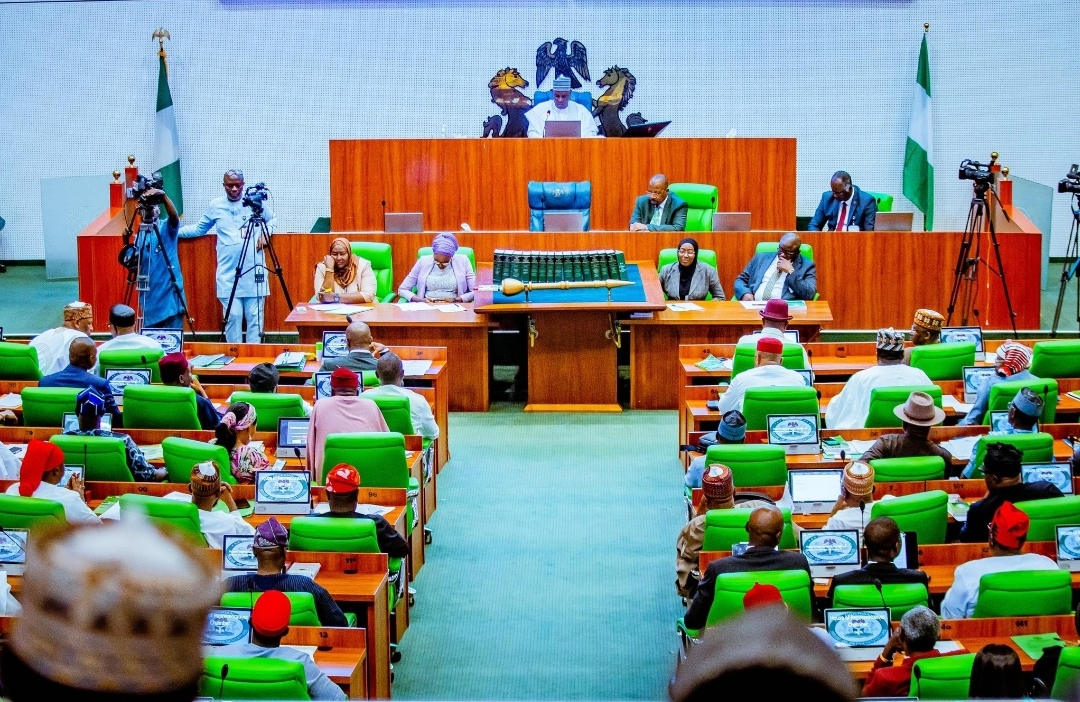An aggregate of 60 members of the House of Representatives have jointly sponsored the bill aimed at amending the 1999 Constitution to transition from the current presidential system to a parliamentary one by 2031.
During Wednesday’s plenary session, Yahaya Danzaria, the Clerk of the House introduced three proposed bills: the Constitution of the Federal Republic of Nigeria, 1999 (Alteration) Bill, 2024 (HB.1115); Constitution of the Federal Republic of Nigeria, 1999 (Alteration) Bill, 2024 (HB.1116); and Constitution of the Federal Republic of Nigeria, 1999 (Alteration) Bill, 2024 (HB.1117).
Led by Wale Raji, lawmaker representing Lagos State under the All Progressives Congress, the lawmakers identified the need for reducing the cost of government, and robust policy debates as some of the reasons for demanding a return to the parliamentary system.
Titled, ‘The Bills proposing constitutional alterations for a transition to parliamentary system of government,’ the bill was sponsored by the House Minority Leader, Kingsley Chinda, 59 others and read for the first time on the floor of the House during Wednesday’s plenary session in Abuja.
Speaking to reporters after the session, spokesperson Abdussamad Dasuki highlighted the bipartisan and cross-regional collaboration behind the bills.
Dasuki emphasized that these proposed alterations hold the potential to significantly reshape Nigeria’s political framework.
He pointed out that the current presidential system, initially modeled after the United States’ system, has exhibited characteristics akin to military rule in practice.
This, he argued, has led to an imbalance of power, hindering the nation’s development and accountability.
Dasuki elaborated on the advantages of returning to the parliamentary system, which characterized Nigeria’s First Republic.
During this period, legislative and executive powers were wielded by elected representatives, fostering accountability and responsiveness to the populace.
READ ALSO: Some Members Were Invited To APC To ‘Come And Eat’ — Reps Deputy Spokesman, Agbese
His words: “Our founders in their wisdom and in a political atmosphere devoid of compulsion, and having considered the interests of their native peoples and their desire to live together in a country where truth and justice reign, where no man is oppressed, and where all citizens live in peace and plenty, adopted the parliamentary system of government.
“That was the governance system of the First Republic, a period when legislative and executive powers were exercised by the representatives of the people in parliament and in the executive, and by the nature of the system, these representatives were accountable to the people.
“For six years while it was in operation, the system worked for the country.
“The collapse of the First Republic and the long stretch of military rule culminated in the adoption of a new system of government, theoretically fashioned after the presidential system of the United States but in practice, imbibed the uttermost attributes of military rule.
“No wonder the Nigerian President appears to be one of the most powerful presidents in the world.
“Over the years, the imperfections of the presidential system of government have become glaring to all, despite several alterations to the constitution to address the shortcomings of a system that has denied the nation the opportunity of attaining its full potential.
“Among these imperfections are the high cost of governance, leaving fewer resources for crucial areas like infrastructure, education, and healthcare, and consequently hindering the nation’s development progress, and the excessive powers vested in the members of executive, who are appointees and not directly accountable to the people.
“The bills presented today (Wednesday) seek a return to the system of government adopted by our founders, which made governance accountable, responsible and responsive, and ultimately less expensive.”
While acknowledging that the transition may not be immediate, lawmakers are hopeful that by 2031, Nigeria will successfully transition to a parliamentary system.
This move is seen as a step towards addressing governance challenges, reducing the cost of administration, and fostering unity in diversity among Nigerians.





